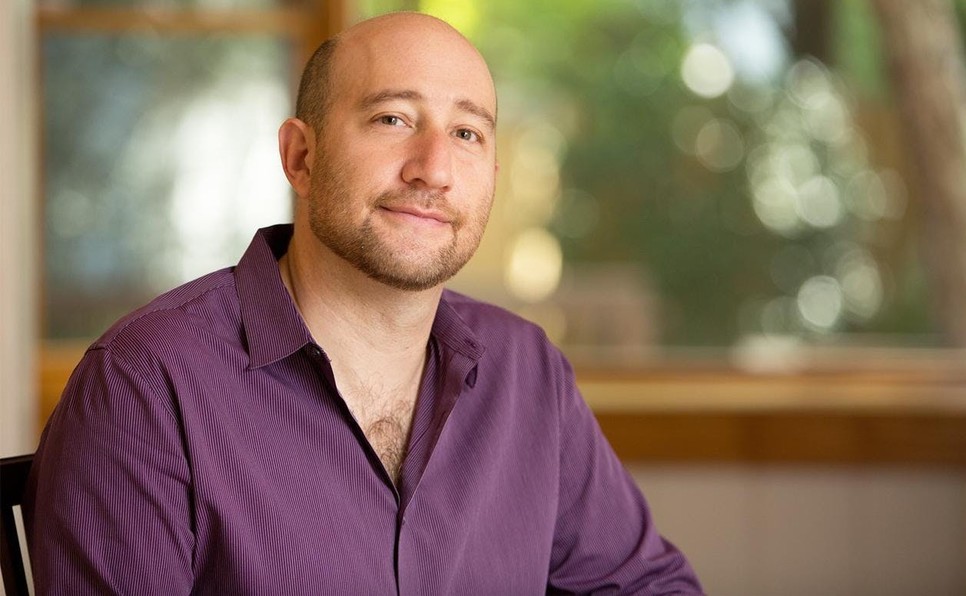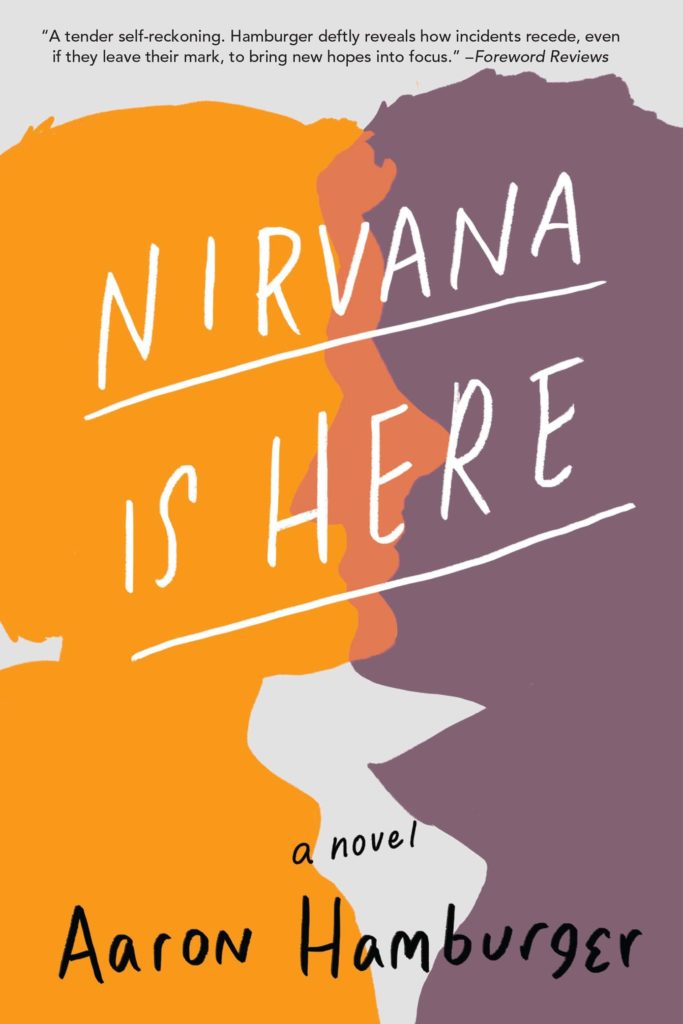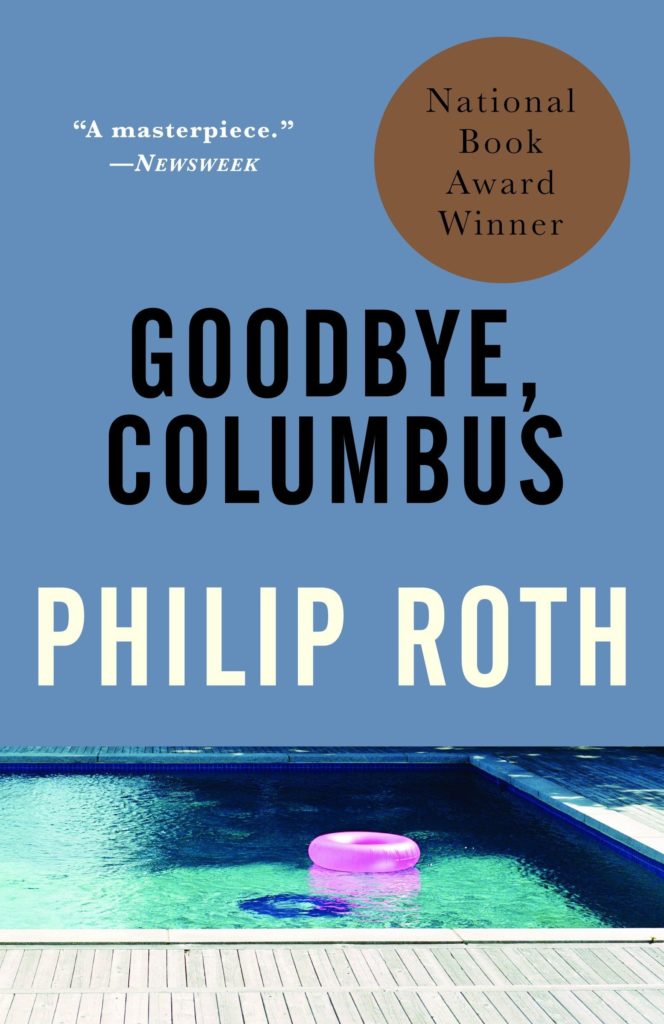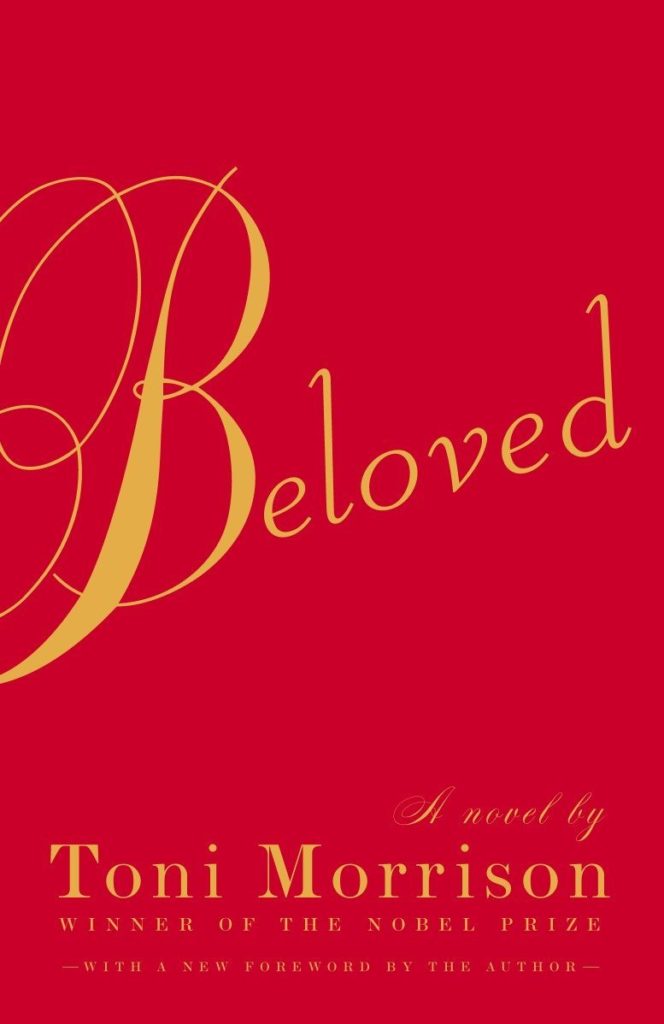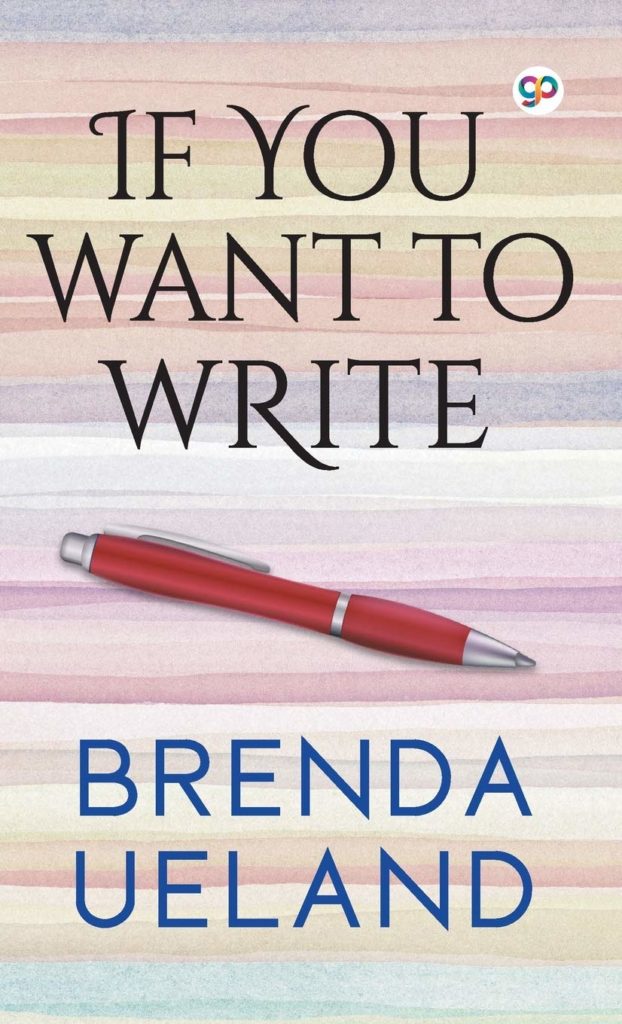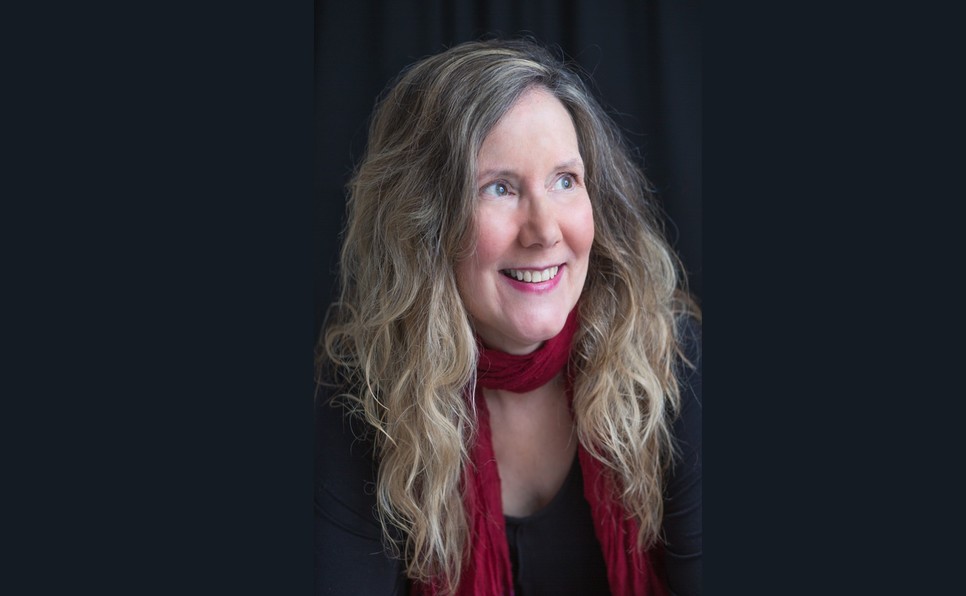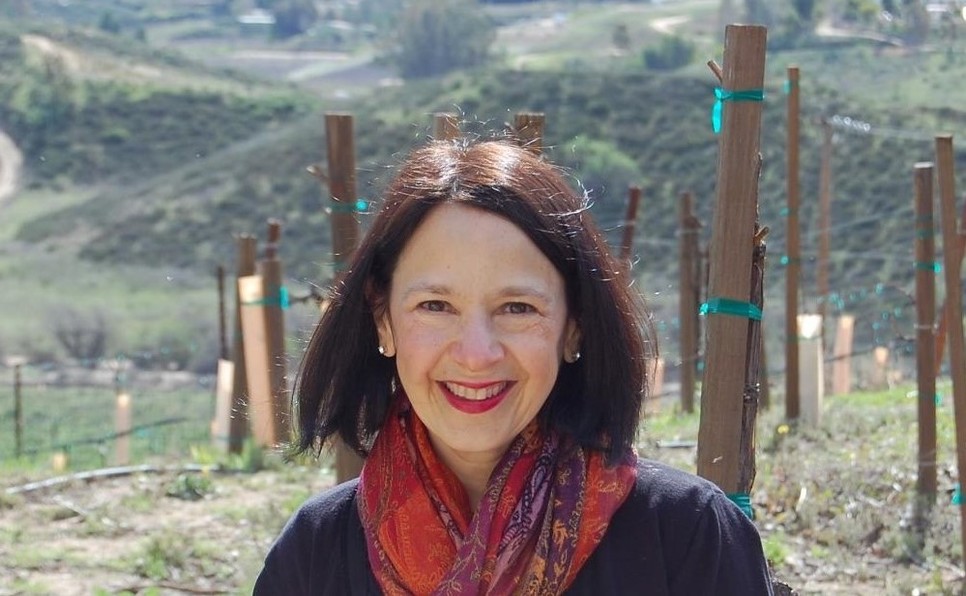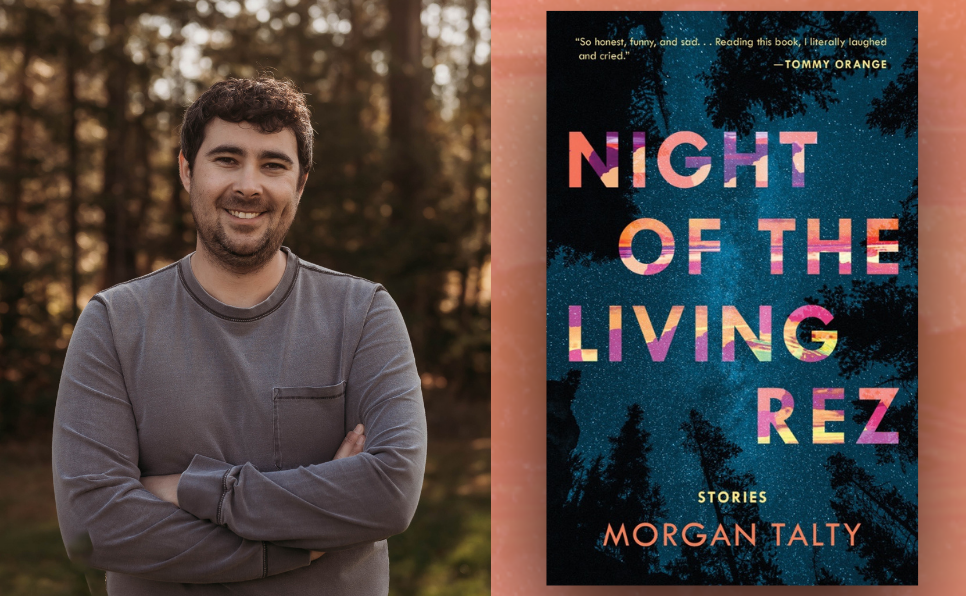I’m thrilled to kick off our Aspiring Author interview series with my wonderful MFA mentor: author Aaron Hamburger. I first met Aaron in the summer of 2019 when I started my Creative Writing MFA program. I remember jealously watching some of my cohort come out of his workshops buzzing with new ideas and thinking, hey, I want to learn from that guy! We soon bonded over our shared keenness for social justice, Jewish identity (spanning food, to Roth, to Israel, to mothers!), culminating in our work together on my third semester research essay: The Long Suffering Immigrant: Jewish Identity in Modern Literature. I have learned so much for him, and my journey at Stonecoast would not have been the same without him. I am humbled and absolutely honored to publish his interview below.
How did you get into writing?
I’ve always been a reader. At a very young age, I was always carrying a book around. And then when I was in the sixth grade, we had a school creative writing contest, and I wrote a story for the first time, one which I was very excited about. On the day it was due, however, I forgot the story at home, and so I lost the contest. I wanted to prove that I deserved to win! So I wrote some more, and then I kept on writing. I caught the bug.
How did you find your literary agent?
I found my first literary agent through the acknowledgment pages of one of my favorite writers, and I learned about my current agent via Poets & Writers Magazine. He’s wonderful.
Describe your publishing journey
In my 20s, I moved to New York, where I began doing freelance writing assignments, like interviews with authors or book reviews, and then I added literary essays and memoir essays to that. Eventually I also began publishing stories in literary magazines. At the same time, I worked in publishing, then pursued an MFA in fiction at Columbia, which was an amazing experience that taught me an amazing amount about the nuts and bolts of craft. There’s so much about publishing you can’t control, but one thing you can and should control is trying to maximize your knowledge and your skills. When I finished my grad program, I found an agent who sold my first book. This all makes it sound very easy and straightforward, but there was a lot of rejection in there, a lot of false starts and dead ends, and a lot of self-questioning and doubt. And of course, that never goes away!
What is your writing routine?
My life is so irregular in a lot of ways that it’s hard for me to have a routine, but I do have a goal, which is to write five days a week, three hours a day. And those hours do not have to be consecutive. I want to stress that these are goals. Sometimes they’re not met, but they’re always there to keep me track or get me back on track.
Who are your literary inspirations?
So many, too many to list in any complete way. But I think I would start with some of the amazing teacher-mentors I’ve had (who are also amazing writers) like Eileen Pollack, Binnie Kirshenbaum, and Mary Gordon. And then certain writers have been crucial to me along the way: Jane Austen, Henry James, E. M. Forster, Virginia Woolf, Anton Chekhov, George Orwell, Christopher Isherwood, Bernard Malamud, Anne Tyler, and lately Toni Morrison and Philip Roth.
Describe your relationship with your literary agent
I would say it’s very open and very direct, very friendly. I feel like my agent is very much in my corner and in tune with what I’m doing. I trust his advice, and I feel like I can go to him with any question I have. When I started working with him, I sensed his love of what I was doing and his deep understanding of it as well, and I think that’s exactly what you want from an agent.
Describe your relationship with your editor
Similar to what I said above about my agent, the thing that sold me when my editor made an offer on my novel was her evident and deep love for my book as well as her deep understanding of what I was trying to do with it and how to make it better. One of my favorite parts of working with her is having a conversation with her about her suggestions and my ideas for them because she always comes up with some genius way to make my ideas even better.
How do you separate the business end of writing from the craft?
It’s important to separate business and craft because they are two different things, and when writers confuse them, it’s usually not helpful for either aspect of their careers. The good news here is that as a writer, it’s pretty hard to predict which pieces we’re working on are going to be more marketable than others. So if we just get out of the prediction business as we create, we’ll probably save ourselves a lot of agita.
For me, the business side of things comes in when I’ve finished something and then I’m submitting work for publication. It’s a totally different process. Once I have a piece that I’ve written or an idea I’ve formulated for a pitch, I can then go into business mode and think, now that I know what I have, who might be interested in it. (This is in contrast to thinking, oh, here’s a market, how can I write something that would appeal to that market. That rarely works.)
In your new novel Hotel Cuba, you reference your protagonist Pearl as a “new woman”. Your immigrants are futurists and change agents. Why is that important?
In this particular case, Pearl’s ideas about being a new woman are rooted in character and time and place. But I do think in general that if you have the courage to leave your home and try to make a new one somewhere else, you probably have to believe in change and the future. Maybe that’s why immigrants have such a wonderful effect on a country. They bring that energy, those new ideas, new perspectives on things that people who’ve been living in the same place for a while might take for granted. Pearl’s story is based on that of my grandmother, who was an immigrant as well as my grandfather, and I was fortunate to know them. They were such wonderful and inspirational people and I’m forever in their debt. As an adult, I tried to repay that debt not only by writing this novel but also by teaching English to immigrants for several years in New York, and I was amazed at how kind and impressive almost all my students were, no matter where they came from.
I’ve heard you lecture about using writing for change, and for political progress. How can writers do that without fear?
Toni Morrison says that troubled times are precisely when artists should work. Our voices are needed to heal civilizations. This is our job. In a way, I think all writing is political and about change. The simple act of telling a story creates change because if you’re telling a story well, you’re changing people’s perceptions.
As James Baldwin points out, the world changes according to the way people see it, and if you can alter even a tiny bit the way people look at the world, then you can change it. I would also say it’s important not to lecture or sermonize. Just be honest and authentic. And maybe that is the hardest thing of all to do: be honest.
Author Cheryl Strayed also has a great way of putting this: “Writing is hard for every last one of us… Coal mining is harder. Do you think miners stand around all day talking about how hard it is to mine for coal? They do not. They simply dig.”
Your characters are almost always reckoning with their identities? How best can writers portray that identity struggle?
By not consciously trying to portray it. Simply tell a specific story of specific characters who are reckoning with identity as they’re going about whatever they’re doing—which is what real people do. If you’re trying to “rig the game” so to speak by forcing them to do or say or think things that they wouldn’t in a natural way, it will never work. Walt Whitman said the specific is the only universal, and I agree. More people will be interested in your characters if you’re being honest about their very specific circumstances and not trying to force them to be mouthpieces for ideas. Trust that the larger and more abstract issues you want to address will arise organically from any well-told and authentically told story.
You have spoken at length about how your identity influences your work – why do you think writers must mine their own experiences?
I don’t necessarily think writers are obligated to mine their own experiences, though that is often how I work. The writer Jean Auel (of The Clan of the Cave Bear series) once said, you can either write about what you know or know about what you write. So the choice is there for each writer to make. But the trick is that both modes require research, though maybe different kinds of research. When writing about one’s own life, you can fall into the trap of thinking you don’t need to research that, but oh do you ever! And research can be reading and looking up stuff. But it can also be talking to people. It can also be a deep and fearless dive into your own heart, really questioning your own sacred truths, really looking hard at your own blind spots.
Talk to me about Jewish and gay identity in your writing. Do you think combining these identities has made it easier or harder for you to get published? Why is that?
Because I often write from my own experience and I happen to be both Jewish and gay, I find it naturally to write about characters who also belong to those identity buckets. And I actually think there are some interesting similarities there, for example, the ability to “pass,” the idea of “being read” as either Jewish or gay, even the coming out story could apply to both Jews and gays. Also negative stereotypes about both groups are often quite similar.
There have been both advantages and challenges associated with the fact that I’ve written quite honestly from my experience. I had thought that if I wrote about Jewish people and gay people, that would mean I could market my work to both groups. However, I was shocked to discover that some folks in the publishing industry thought no, I could only market to people who were both Jewish and gay. I have been able at times to publish work in Jewish venues or gay venues, or to get a writing assignment because I was known for writing about one or the other or both. However, I have also found there are readers who are not sure they want to read what I write because they don’t belong to those categories, so they think my work is not for them. That makes me sad.
All work is for everyone!
What books about writing do you recommend?
I love Reading Like a Writer by Francine Prose, Bird by Bird by Anne Lamott, and If You Want to Write by Brenda Ueland. The last book in particular has been very inspirational to me. Ueland talks about the importance of creating work regardless of its reception in the world and why we should do that, and that’s very important.
What keeps you sane?
Have I fooled you into thinking I’m sane? What a good actor I must be! Just talk to my husband, and he’ll tell you the true story. Seriously, though, this is not an easy business and it’s also not an easy craft. Sometimes it helps to have self-compassion and acknowledge that.
What does success look like to you?
That’s an easy one. Success is a day I get my work done. That allows me to have a lot of success.
As my fearsome author mentor, you have always been in my corner. How important is it to you to pay it forward to aspiring authors?
Very important. I remember my mentor Binnie Kirshenbaum saying that some people labor under the delusion that the universe is like a pie and there’s only so much pie to go around. In fact, it works the opposite way. The pie is infinite. The more success there is out there, the more there is to go around. And the more your friends are successful, the better it is for you and for everyone. Plus, it’s just such a more joyful way to live one’s life than to be petty and jealous. I can think of fewer things more exciting or pleasurable to me than seeing a really talented and hardworking former student of mine publish something they’re proud of, and I want to be in the front row cheering for that. And hey, then I get to brag that I was that person’s teacher! Though in fact I can’t take much credit for their hard work and their talent. My job is simply to nudge it along a bit during the time we work together.
What advice do you wish you’d listened to over the course of your career?
Big advice: The answer is always yes. When someone offers you an opportunity to write something, to publish something, to teach in Paris for a summer, to interview an amazing writer for a big literary magazine (a couple of things I foolishly turned down because I believed I was too busy), SAY YES! You never know where an opportunity, no matter how small, is going to lead. Take a chance. Say yes.
I’m happy you said “yes” to being interviewed for Aspiring Author! Thank you, Aaron
Of course!
About Author Aaron Hamburger
Aaron Hamburger is the author of a story collection titled The View from Stalin’s Head which was awarded the Rome Prize by the American Academy of Arts and Letters and nominated for a Violet Quill Award. He has also written three novels: Faith for Beginners, nominated for a Lambda Literary Award, Nirvana is Here, winner of a Bronze Medal from the 2019 Foreword Reviews Indies Book Awards, and Hotel Cuba, due out from Harper Perennial in 2023.
His writing has appeared in The New York Times, The Washington Post, The Chicago Tribune, The Village Voice, Tin House, Michigan Quarterly Review, Subtropics, Crazyhorse, Boulevard, Poets & Writers, Tablet, O, the Oprah Magazine, Out, The Bennington Review, Nerve, Time Out, Details, and The Forward. He has also won fellowships from Yaddo, Djerassi, the Civitella Ranieri Foundation, the DC Commission on the Arts and Humanities, and the Edward F. Albee Foundation as well as first prize in the Dornstein Contest for Young Jewish Writers, and his short fiction and creative non-fiction have received special mentions in the Pushcart Prizes.
He has taught creative writing at Columbia University, the George Washington University, New York University, Brooklyn College, and the Stonecoast MFA Program.
Recommended reading
Here at Aspiring Author, we love recommending bestsellers and fawning over hot new releases. On this real time recommended reading list, you will find a list of top rated books on the publishing industry, craft, and other books to help you elevate your writing career.

